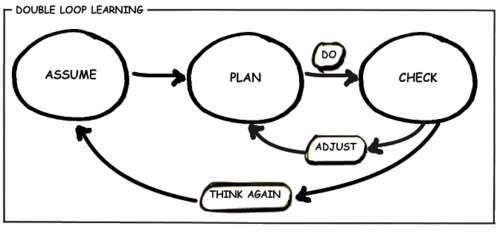
it·er·a·tion
ˌitəˈrāSHən/
noun
- the repetition of a process or utterance.
- repetition of a mathematical or computational procedure applied to the result of a previous application, typically as a means of obtaining successively closer approximations to the solution of a problem
~~~
As you may know, LifeSparcs.com was built on the concepts borne in part from the software processes collectively called Agile. For those unaware, there’s a whole industry devoted to making things in small chunks. There’s a manifesto, principles, certifications, and well-attended, wonderfully geeky conferences. Anything from cars to iPhones are created using some sort of iterative process.
Why was this Agile thing borne out of the software industry? As the saying goes, Software is Hard, and in 2001 a bunch of folks gathered in a snow lodge in Utah and codified Agile, realizing that with the level of complexity increasing, moving forward iteratively was the only way to get there from here. That is, that you take whatever problem you’re trying to solve, break it in chunks, break those chunks down, and work them in time-boxes we call sprints or iterations.
In the SPARC process, we divide the year in 52 time boxes we call iterations, with a second loop dedicated to reviewing quarterly (at a minimum). This system is based on double-loop learning, a concept pioneered decades ago by Chris Argyris.
With SPARC, you assume what both what you want and where you are. You plan it, do, check, adjust, and also review your initial assumptions. You learn about what you’re doing AND learn about how you learn.

But how does this manifest itself? Let’s take a look:
In the LifeSparc Process, each week iteration consists of the following elements:
- Determining your Situation. What is your current reality? Is this going to be a great week or is Uncle Igor coming over for the week, and you expect a low level of progress towards your goal?
- What’s the Possibility that this week holds? This flips the script, moving immediately to a positive frame of mind. If this was the PERFECT week, what would happen?
- Actions are critical, even if they’re imperfect actions. Sunday night, try to come up with a few of them towards one to three goals you might be pursuing. Keep in mind this simple question – how do you know when you’re done with that action?
- Reflect & Renew – Towards the end of the week, or maybe even sooner, it might be necessary to renew yourself. The actions in this SPARC process are going to be difficult or you would have done them already. Studies show that will power is a limited resource, but one that can be replenished. Perhaps its gardening? Maybe a quick walk? Watching your favorite show at the end of the day? Getting away from Uncle Igor for a few hours?
- Collect & Coach – Ideally during the week you were tracking and counting the actions and things you set out to do, e.g. going to the gym, distance you walked, lines of code you wrote, pages you read, etc. If you didn’t track it, try to recall it here. How many of your actions did you get completed? It’s very important to celebrate every single one. Finally, how did you get help ( Coaching)? In his book, Stumbling on Happiness, Daniel Gilbert reports that those who seek the advice of experienced people in the domain they’re after often find greater happiness than those that do not.
It doesn’t matter if you do the SPARC process in your mind, on a bullet journal or one of the memobooks I created for the effort. The tool is irrelevant. Make it simple for yourself. Leave the book out, so you see it every night. Understand the process is a tool, not a set of chains to bind you.
What do you use to track your goals? You are tracking something, right? If not, why not?